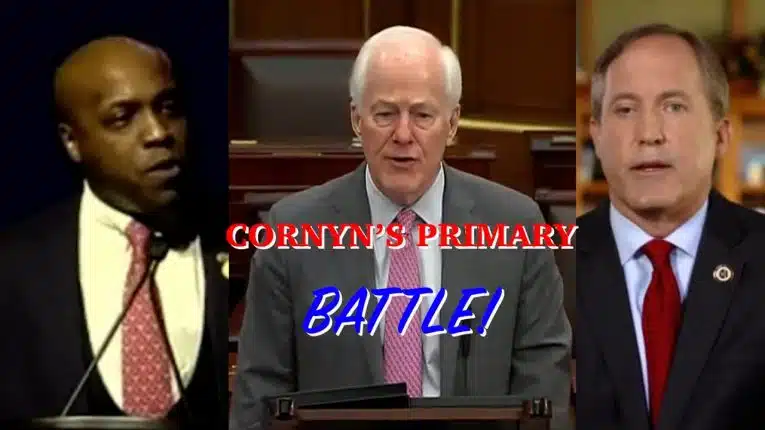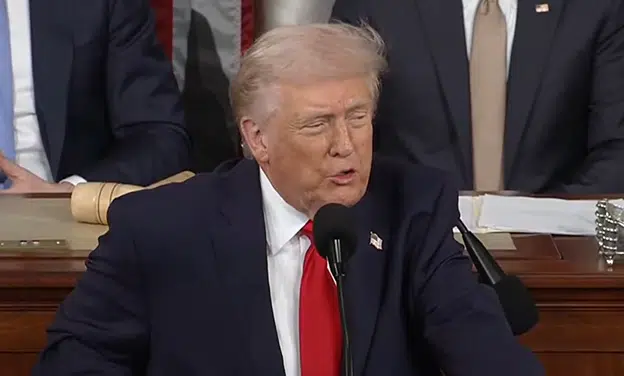By Victor Morawski – Coming home one afternoon recently, I found in my mailbox a brochure from my local Democratic Congressman — Rep. John Sarbanes. A little reading let me see quickly that it was really a one-page attack on the Ryan Budget Plan.
Assuring us, his senior constituents, that he “voted against the bill” which he characterizes in alarmist language as “a direct assault on Medicare and Medicaid programs,” Sarbanes offers four bullet points, only one of which comes anywhere near the truth.
As I do not believe that I am the only person in these vast United States to have come home to such a mailing, I thought some reflections on it were in order.
He does accurately observe that the proposed Ryan Budget Plan contains a provision which repeals the part of Obamacare that closes the doughnut hole in the Medicare Part D prescription drug plan.
While this would be nice to do for seniors, at a time when Medicare’s future solvency is a matter of real concern and we are filling the federal government’s ledgers with the red ink of deficit spending at an unprecedented rate, can we realistically afford to fill in the doughnut hole? Or would this just represent another empty, undeliverable promise of progressivism?
Charging that, “Under the proposal, seniors would have to begin paying for… preventive services” now “completely covered by Medicare” Sarbanes delivers his second point. But as the Ryan plan essentially makes no changes to current Medicare, this accusation seems to be made up out of whole cloth.
Countering the above is the Ryan proposal’s stance that, “Every American should have access to affordable health insurance, and the ability to acquire preventive health care and treatment…” and its commitment to addressing the underlying causes of higher health care costs that threaten to keep this from becoming a reality.
Apart from this general commitment, the proposal is silent on the issue of preventive health services. Democrats owe us an explanation of the origin of this charge.
The mailing’s main thrust reveals its greatest distortions and misunderstandings of Ryan’s plan.
The Congressman lets us know that one of his greatest concerns about the proposal is “that it would significantly increase the out-of-pocket expenses of our seniors.” In a previous opinion column we explained in detail why this just isn’t so.
Supporting this claim, though, Sarbanes cites the Congressional Budget Office’s (CBO) study of Ryan’s plan. Chris Wallace of Fox News Sunday too made a similar reference a few weeks ago, but citing the CBO study does not work.
Wallace referred to the CBO’s finding that the Ryan Plan’s Medicare reforms would mean seniors would pay higher out-of-pocket costs for Medicare. Arguments claiming this systematically ignore the effects interstate competition among health insurers — permitted for the first time under the Ryan plan — would have on lowering health insurance premiums.
Points made there apply equally to the CBO’s figures. While acknowledging that Ryan’s plan contains a provision allowing interstate competition, CBO experts chose to give it no credit for having any effect over time on health insurance premiums, instead merely assuming that, “private plans would cost more than traditional Medicare because of the net effect of differences in payment rates for providers, administrative costs, and utilization of health care services.” But the whole point is whether interstate competition would prompt them to keep costs down.
Most egregious, and hardly unintentional, is the Sarbanes brochure’s utter distortion of the Ryan plan as a voucher plan where, “Medicare would issue a fixed-dollar voucher to seniors. If a senior required services whose costs exceeded the value of the voucher, he or she would be responsible for paying those additional costs.”
Seniors would have no such responsibility. As a premium-support, not a voucher plan, Medicare would pay the senior’s health insurance premium directly to the insurer which would then pay for that senior’s health services. The Democratic distortion makes it look like each senior is given only a fixed amount by Medicare to pay directly for his/her health care needs, which is just not the case.
Victor Morawski, professor at Coppin State University, is a Liberty Features Syndicated writer.






